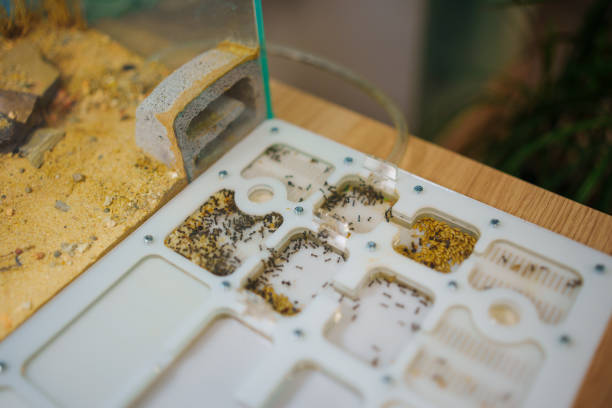The Exciting World of Insect Farming: A New Trend in Pet Ownership
Introduction: In the vast realm of pet ownership, a new trend is buzzing with excitement. Insect farming, once reserved for scientific research and food production, is now making its way into homes as a unique and engaging hobby. Let's delve into this fascinating world and discover how it's transforming our understanding and appreciation of these tiny creatures.

A Brief History of Insect Farming
Insect farming has been around for centuries, with cultures worldwide using insects for food, traditional medicine, and even religious ceremonies. However, it was not until the 20th century that insect farming took a more scientific turn. Entomologists began rearing insects in controlled environments to study their behavior, life cycles, and ecological roles. Over time, this practice expanded beyond the scientific community, and insects started to be farmed for their potential as a sustainable food source for animals and even humans.
The Rise of Insect Farming as a Hobby
In recent years, insect farming has taken on a new dimension as a hobby for pet enthusiasts. This trend has been driven by a growing interest in sustainable living, a desire for unique pets, and a fascination with the natural world. Insects are low-maintenance pets that require minimal space and resources, making them an appealing choice for individuals and families alike.
Current Market for Insect Pets
Today, the market for insect pets is thriving, with a variety of species available for purchase. These include stick insects, beetles, and silk worms. Prices vary depending on the species, but most insect pets are quite affordable, ranging from $5 to $50. This trend is not only creating a new niche in the pet industry but also promoting a greater appreciation for insects and their vital role in our ecosystems.
The Benefits and Challenges of Insect Farming
Insect farming offers several benefits, both for the owners and the environment. It encourages sustainable living, provides educational opportunities, and can even offer therapeutic benefits through the care and observation of these creatures. However, it also presents challenges, such as ensuring the insects’ proper care and preventing potential escapes that could disrupt local ecosystems.
The Future of Insect Farming
Given its current popularity, the trend of insect farming as a hobby is likely to continue. As more people discover the joy and benefits of keeping insects, we may see more species becoming popular pets. Additionally, this trend may encourage further research and conservation efforts for insects, highlighting their importance in our world.
In conclusion, insect farming as a hobby is more than just a passing trend—it’s a fascinating blend of science, sustainability, and pet care. As we continue to explore this unique realm of pet ownership, we can expect to gain new insights into these tiny creatures and their significant role in our lives and the environment.




